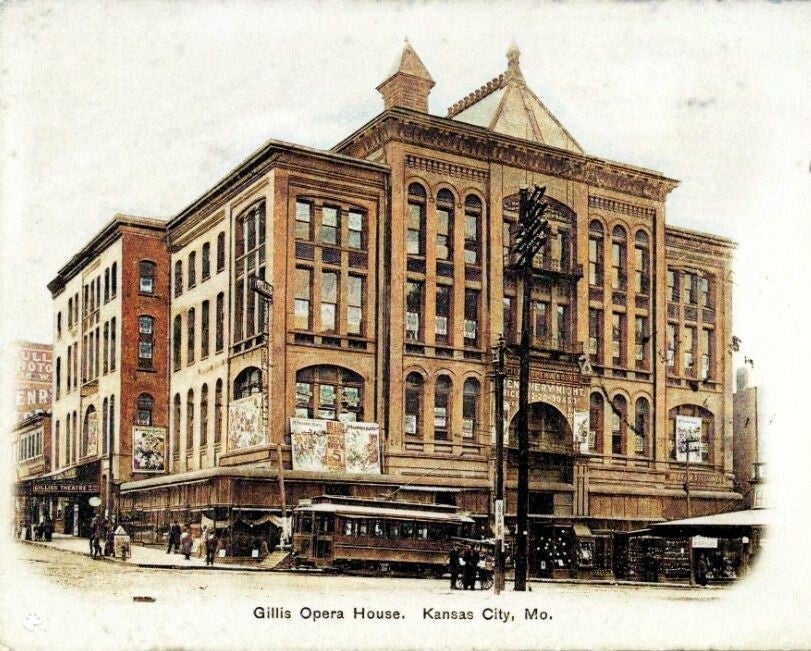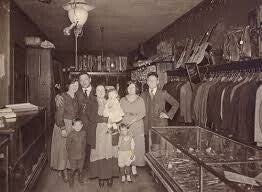history behind WHISKEY & WRY

Prohibition in Kansas City
Prohibition in Kansas City was characterized by widespread defiance of the law, flourishing illegal alcohol industries, and rampant corruption under the Pendergast political machine, which allowed vice and gambling to thrive. Instead of an enforcement, Kansas City became known as a "wide-open town" and the "Paris of the Plains" due to its thriving speakeasies, jazz clubs, and mob-sponsored activities, fostering a vibrant nightlife and a large underground economy that contrasted with the rest of the nation's compliance.

Lady Bootleggers
During Prohibition, Kansas City's famously corrupt political machine allowed vice to flourish, creating opportunities for female bootleggers. These women operated in various capacities, from running home stills for extra income to managing large-scale operations and leveraging social biases to avoid arrest.

The Gillis Opera House
The Gillis Opera House was Kansas City's grandest theater at the turn of the 20th century, completed in 1883 by William Gillis's niece, who used his inheritance to fund both the theater and the related Gillis Orphans' Home. Designed by Asa Beebe Cross, the opera house was a symbol of the city's cultural aspirations but declined in the late 19th century as the city's business center shifted south. The building was ultimately destroyed by a mysterious explosion in 1925, and the Gillis Building replaced it.

Dolgin's Pawn Shop
Dolgin's stores originated in the 1920s as a small pawn shop in downtown Kansas City, operated by Louis Dolginow, with David Dolgin joining the family business in the 1930s. The company expanded significantly, opening more catalog locations and fine jewelry stores in both the Kansas City and St. Louis metropolitan areas by the 1970s and 1980s.

Henry Perry: Father of Kansas City BBQ
Henry Perry is regarded as the "Father of Kansas City BBQ". Given the long and storied tradition of barbecue in this city, the fact that leading restaurants from Gates to Arthur Bryant's draw their roots to Perry's shop at 19th and Highland is a tribute not only to Perry's craft but also to his influence on the next generation of cooks and restaurant operators.
Henry Perry was a very generous man. The Kansas City Sun, July 3, 1920, reported that Perry served a free barbecue dinner to 1000 "old men, women, and children" on the vacant lot behind his 19th and Vine street restaurant. When asked to comment about the barbecue, Perry reportedly replied, "God has been so good to me," indicating that he was glad to share his blessings with others.
July 3rd is Henry Perry Day, a local holiday, celebrated by many in the Kansas City area.

The DiGiovanni Brothers in Kansas City
The history of the DiGiovanni brothers in Kansas City begins with Joseph "Joe Church" DiGiovanni and Peter "Sugarhouse Pete" DiGiovanni, two Sicilian mafiosi who fled to Kansas City in 1912. They established an organized crime family, and under the protection of the Pendergast Machine, they profited greatly from bootlegging during Prohibition. John Lazia eventually took over their operations, and the criminal organization expanded.
"If you don't know history, then you don't know anything. You are a leaf that doesn't know it is part of a tree."
Michael Creighton, Timeline

